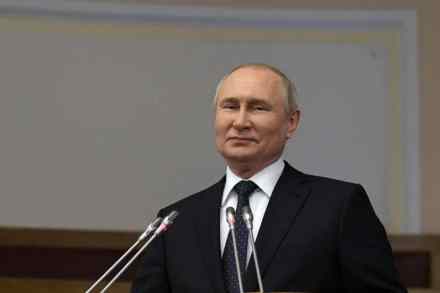Will Putin succeed where Stalin and Khrushchev failed in Ukraine?
A few weeks after Putin’s war against Ukraine began on 24 February, an infamous article was published in RIA Novosti, a leading Russian state mouthpiece. Written by Timofey Sergeytsev, it was entitled ‘What Russia should do with Ukraine’ and was full of ideas. These included ‘ideological repression’ and ‘strict censorship’ for their neighbour country, not only in the political sphere but in culture and education as well. The information space (the media) should become Russian, and all school materials containing ‘Nazi’ (i.e. pro-Ukraine) ‘ideologies’ be confiscated. The ‘Nazi’ government should be ‘liquidated’ while those not ‘subject to the death penalty or imprisonment’ for their ‘Nazi’ activities could, to rebuild an






















